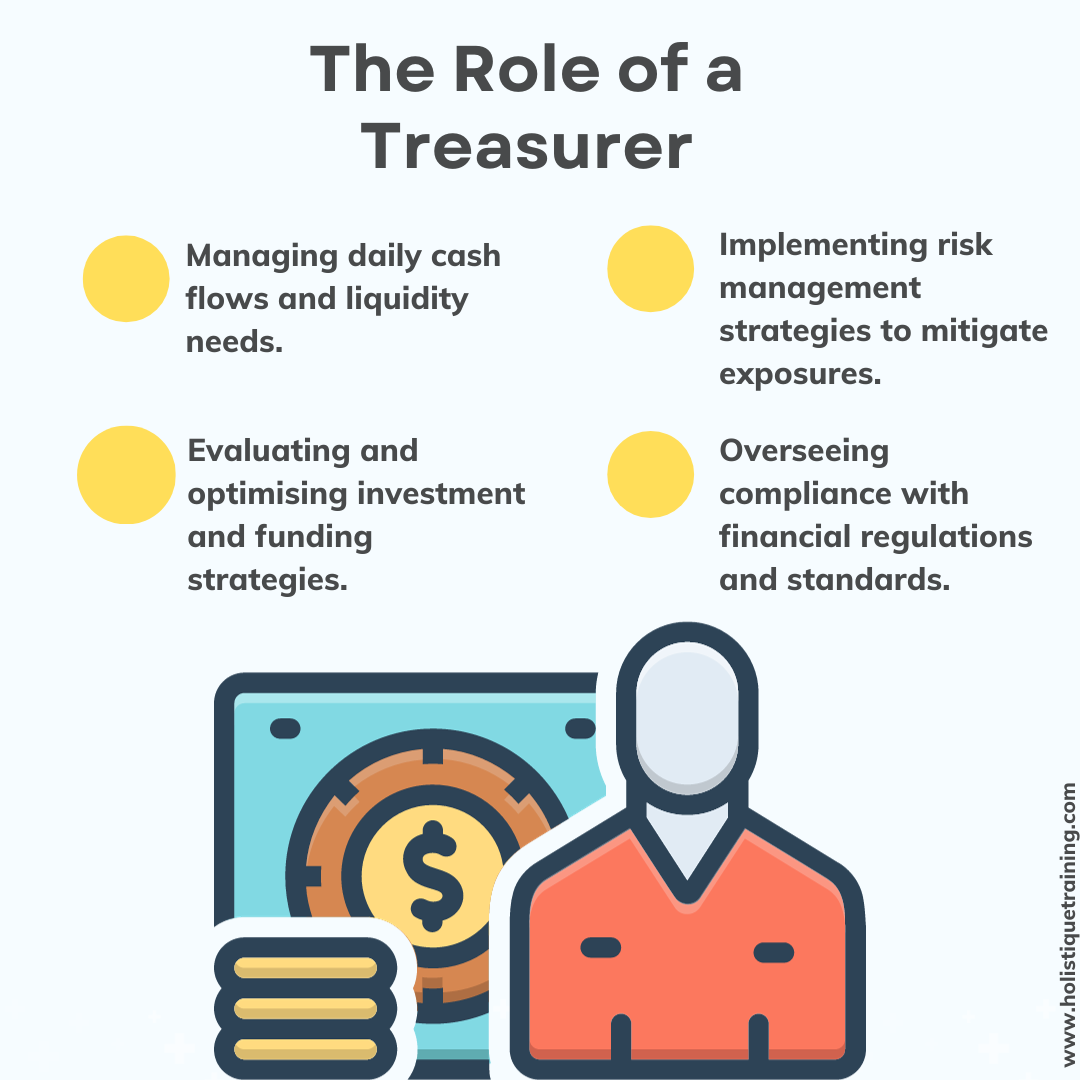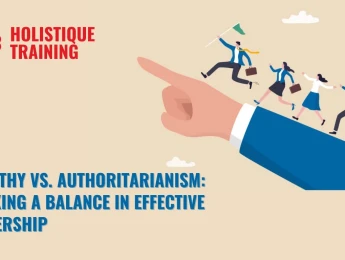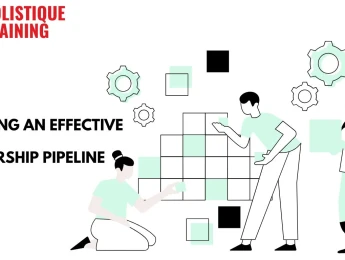- Table of Contents
- Introduction
- Who Is the Treasurer?
- What Are the Main Responsibilities of a Treasurer?
- a) Daily Cash Management
- b) Investment Management
- c) Risk Management
- d) Debt Administration
- e) Participation in Financial Decision-Making
- f) Strategic Planning
- Expectation by Job Level
- 1- Tactical Level
- 2- Operational Level
- 3- Managerial Level
- 4- Strategic Level
- Treasurers In Small vs. Large Organisations
- Treasurer Skills: Soft and Hard
- Soft Skills:
- Hard Skills:
- Main Requirements to Become a Treasurer
- Education:
- Certifications:
- It Doesn’t Stop There
- Why Is Having a Treasurer Important?
- Safeguarding Financial Health
- Navigating Financial Complexity
- Managing Risk
- Contributing to Strategic Decision-Making
- Fostering Stakeholder Confidence
- Guiding Through Economic Uncertainty
- Ensuring Regulatory Compliance
- Is This the Right Career Path for You?
- 1. Passion for Finance
- 2. Keen Analytical Skills
- 3. Comfort with Risk and Uncertainty
- 4. Effective Communication
- 5. Adaptability and Continuous Learning
- 6. Strategic Mindset
- 7. Interest in Regulatory Compliance
- 8. Comfort with Leadership
- Consider This Checklist after Being Elected Treasurer
- 1- Familiarise Yourself
- 2- Build Relationships
- 3- Review Financial Policies
- 4- Assess Risk Management
- 5- Establish Reporting Mechanisms
- 6- Set Strategic Goals
- 7- Continuous Learning
- Conclusion
Introduction
Embarking on a journey into the realm of financial stewardship, the role of a treasurer is a pivotal one in any organisation, steering the ship through the complex seas of fiscal responsibility. From small grassroots initiatives to massive corporate entities, the treasurer plays a vital role in maintaining financial health and ensuring the organisation's sustainability. In this comprehensive exploration, we unravel the layers of the treasurer's role, examining their responsibilities, expectations across different job levels, skills required, educational prerequisites, and the crucial question of whether the role varies in small versus large organisations.
Who Is the Treasurer?
Before delving into the intricacies of a treasurer's responsibilities, let's first understand who this financial custodian is. The treasurer is a key member of an organisation's leadership team, entrusted with the responsibility of managing and safeguarding its financial assets. This individual is the steward of the organisation's financial strategy, overseeing a spectrum of tasks that range from day-to-day financial operations to long-term financial planning.
What Are the Main Responsibilities of a Treasurer?
At the heart of an organisation's financial landscape, the treasurer stands as the custodian of fiscal well-being, tasked with a diverse range of responsibilities that span both the immediate and long-term horizons of financial management.
a) Daily Cash Management
One of the foundational pillars of a treasurer's responsibilities lies in the realm of daily cash management. This involves orchestrating the organisation's liquidity, ensuring that there is enough cash on hand to meet immediate operational needs. The treasurer monitors cash flows with a keen eye, predicting peaks and troughs to guarantee that the organisation remains solvent and agile in responding to financial exigencies.
b) Investment Management
Beyond the confines of mere liquidity, treasurers are instrumental in managing investments. This multifaceted responsibility involves assessing investment opportunities, optimising returns on surplus funds, and navigating the delicate balance between risk and reward. Treasurers delve into the intricacies of investment portfolios, making strategic decisions that align with the organisation's risk appetite and financial goals.
c) Risk Management
In the ever-evolving landscape of finance, the treasurer assumes the role of a risk manager, shielding the organisation from potential pitfalls. This encompasses identifying, assessing, and mitigating financial risks through a comprehensive understanding of market dynamics, regulatory changes, and internal processes. Treasurers leverage risk management tools, such as insurance and hedging strategies, to fortify the organisation against uncertainties.
d) Debt Administration
As financial custodians, treasurers oversee the organisation's debt structure. This involves managing existing debts, negotiating favourable terms for new borrowings, and ensuring that the debt portfolio aligns with the organisation's financial strategy. Treasurers carefully evaluate debt options, considering interest rates, repayment schedules, and overall impact on the organisation's financial health.

e) Participation in Financial Decision-Making
Treasurers play a pivotal role in major financial decisions, contributing a financial lens to the decision-making process. Whether it's assessing the financial feasibility of a new project, evaluating potential mergers and acquisitions, or providing insights into capital expenditure, treasurers collaborate with other departments to ensure that financial considerations are integral to strategic choices.
f) Strategic Planning
As treasurers ascend to higher echelons within the organisational hierarchy, their focus shifts to strategic planning. Beyond the day-to-day and operational concerns, treasurers become architects of the organisation's long-term financial strategy. This involves forecasting financial trends, formulating financial policies, and contributing to the overall strategic direction of the organisation. Treasurers collaborate with executive leadership to align financial strategies with broader organisational objectives, fostering sustainable growth.
In essence, the treasurer's responsibilities are a finely woven tapestry of financial acumen, risk management, and strategic vision. From navigating the daily nuances of cash management to shaping the organisation's fiscal destiny through strategic planning, treasurers play a vital role in ensuring the financial health and longevity of the entities they serve.
Table 1: Key Performance Indicators (KPIs) of a Treasurer’s Day-to-day
KPIs | Description | Importance |
Liquidity Ratio | Assessing immediate cash availability for operations | Ensures short-term solvency |
Working Capital | Monitoring assets available to cover short-term obligations | Indicates financial health |
Debt Service Coverage | Evaluating ability to meet debt obligations | Ensures sustainability of debt |
Cash Flow Forecast | Projecting future cash inflows and outflows | Guides proactive financial decisions |
Return on Investments | Assessing profitability of invested funds | Measures financial performance |
Expectation by Job Level
The role of a treasurer is not static; it metamorphoses across various job levels, each tier demanding a unique set of skills and perspectives. Understanding these expectations at different levels is crucial for any aspiring treasurer, providing a roadmap for professional growth and contribution to the organisation.
1- Tactical Level
At the tactical level, treasurers are immersed in the day-to-day financial operations of the organisation. Their primary focus is on immediate concerns such as cash management and short-term financial planning. Treasurers at this level are hands-on, ensuring the organisation's liquidity by monitoring daily cash flows. They are adept at navigating the ebb and flow of financial transactions, making real-time decisions to maintain a healthy cash position. Tactical treasurers also engage in routine financial activities, such as processing payments, managing receivables, and executing short-term investment strategies.
2- Operational Level
As treasurers ascend to the operational level, their responsibilities expand to encompass a broader spectrum of financial activities. Operational treasurers are deeply involved in risk management, overseeing the organisation's debt structure, and participating in major financial decisions. They work closely with other departments to ensure that financial considerations are integrated into operational processes. This includes implementing risk mitigation strategies, managing debt portfolios, and providing financial insights for projects and initiatives. Operational treasurers act as financial gatekeepers, safeguarding the organisation against potential risks while contributing to its overall financial health.
3- Managerial Level
Stepping into a managerial role, treasurers become orchestrators of financial strategy. While still engaged in operational activities, their focus shifts towards refining long-term financial plans and policies. Managerial treasurers collaborate with other leaders to align financial strategies with the organisation's overarching objectives. They play a key role in setting financial goals and ensuring that financial resources are allocated strategically. This level involves a greater emphasis on leadership and the ability to communicate a compelling financial vision to both financial and non-financial stakeholders. Managerial treasurers also take a lead role in talent management, building and nurturing a high-performing finance team.
4- Strategic Level
At the pinnacle of the treasurer's career trajectory is the strategic level, where their role transcends routine financial activities to become a driving force in shaping the organisation's future. Strategic treasurers engage in visionary planning, forecasting financial trends, and contributing to the development of the organisation's overall strategy. They work closely with the executive leadership team, providing insights that influence high-level decision-making. Strategic treasurers are adept at anticipating industry shifts, identifying new opportunities, and ensuring that the organisation is well-positioned for long-term success. This level requires a holistic understanding of the organisation's mission and objectives, as well as the ability to navigate complex financial landscapes with a forward-thinking mindset.
In summary, the expectations placed on treasurers evolve as they progress through different job levels. From the tactical finesse required for daily cash management to the strategic foresight essential for long-term financial planning, treasurers navigate a dynamic landscape, continuously adapting their skills and perspectives to meet the evolving needs of the organisation.
Treasurers In Small vs. Large Organisations
The role of a treasurer is nuanced, and its nuances can vary significantly depending on the size of the organisation. In smaller organisations, treasurers often wear multiple hats, handling a broader range of responsibilities. They may be directly involved in day-to-day operations, working closely with other departments to ensure financial stability. In contrast, treasurers in larger organisations may specialise in specific areas, focusing on strategic planning, risk management, or investment strategies, with dedicated teams handling more operational tasks.
Treasurer Skills: Soft and Hard
The role of a treasurer demands a nuanced skill set that extends beyond numerical prowess. Successful treasurers master a delicate balance of both soft and hard skills, equipping them to navigate the intricate terrain of financial stewardship and leadership.
Soft Skills:
1. Communication
Effective communication is the linchpin of a treasurer's success. Treasurers must translate complex financial jargon into clear, comprehensible language for diverse stakeholders, ranging from executives and board members to employees and external partners. The ability to convey financial insights, risks, and strategies with clarity fosters transparency and builds trust.
2. Leadership
Treasurers often operate at the intersection of financial strategy and organisational leadership. Leadership skills are crucial for motivating and managing finance teams, driving collaboration across departments, and influencing key decision-makers. Strong leadership instil confidence in the treasurer's ability to guide the organisation through financial challenges and uncertainties.
3. Interpersonal Skills
Collaboration is inherent in the treasurer's role. Treasurers must build and maintain relationships with various internal and external stakeholders, including financial institutions, auditors, and regulatory bodies. Exceptional interpersonal skills enable treasurers to navigate negotiations, build partnerships, and cultivate a network of support that enhances the organisation's financial standing.
4. Adaptability
The financial landscape is dynamic, subject to constant change. Treasurers must possess adaptability, allowing them to pivot in response to evolving market conditions, regulatory shifts, and organisational priorities. A treasurer who can swiftly adapt to change is better positioned to lead the organisation through both challenges and opportunities.
5. Strategic Thinking
Strategic thinking is the hallmark of treasurers operating at the higher echelons of their roles. This skill involves envisioning the long-term financial trajectory of the organisation, aligning financial strategies with broader objectives, and anticipating industry trends. Strategic thinkers contribute to the organisation's sustainability by identifying opportunities for growth and mitigating potential risks.
Hard Skills:
1. Financial Analysis
A solid foundation in financial analysis is fundamental for treasurers. This involves the ability to dissect and interpret complex financial data, assess the financial health of the organisation, and make informed decisions. Proficiency in financial modelling and analytical tools enhances a treasurer's ability to extract meaningful insights from data.
2. Risk Management
Treasurers are guardians against financial risks. The ability to identify, assess, and manage risks through various tools and strategies is a critical hard skill. This includes understanding market risks, credit risks, and operational risks, and implementing risk mitigation measures to protect the organisation's assets.
3. Treasury Management Systems
Navigating the intricacies of treasury operations often involves leveraging sophisticated treasury management systems. Treasurers must be adept at using these systems to streamline processes, manage cash flows, and optimise investments. Familiarity with financial software enhances efficiency and accuracy in daily financial operations.
4. Regulatory Compliance
Staying abreast of financial regulations is non-negotiable for treasurers. This hard skill involves a comprehensive understanding of local and international financial regulations relevant to the organisation. Treasurers ensure that the organisation adheres to compliance requirements, avoiding legal pitfalls and safeguarding the organisation's reputation.
5. Financial Strategy
Crafting and executing financial strategies requires a strategic mindset backed by a deep understanding of finance. Treasurers must be proficient in developing financial plans that align with organisational goals, whether it involves optimising capital structure, managing debt, or exploring investment opportunities.
In summary, the treasurer's role demands a harmonious fusion of soft and hard skills. While soft skills cultivate effective communication, leadership, and adaptability, hard skills provide the technical expertise necessary for financial analysis, risk management, and strategic financial planning. This dual proficiency positions treasurers as not just financial stewards but also as strategic leaders contributing to the overall success of the organisation.
Main Requirements to Become a Treasurer
Embarking on a career as a treasurer necessitates a robust educational foundation and, in many cases, the attainment of specialised certificates. The amalgamation of academic qualifications and professional certifications equips individuals with the knowledge, skills, and credibility required to excel in the multifaceted role of a treasurer.
Education:
1. Bachelor's Degree
A foundational step towards a career in treasury management is the completion of a bachelor's degree. While the field of study can vary, a degree in finance, accounting, business administration, or a related discipline provides a solid grounding in the fundamental principles of finance. This educational foundation lays the groundwork for understanding financial markets, accounting practices, and economic dynamics.
2. Advanced Degrees (MBA, Master's in Finance)
Many successful treasurers further enhance their qualifications with advanced degrees. Pursuing a Master of Business Administration (MBA) or a specialised master's degree in finance offers in-depth knowledge and a broader perspective on financial management. These advanced degrees provide treasurers with the strategic and analytical skills required to navigate complex financial landscapes.
Certifications:
1. Certified Treasury Professional (CTP)
The Certified Treasury Professional (CTP) designation is a widely recognised certification for treasury professionals. Offered by the Association for Financial Professionals (AFP), the CTP certification covers a comprehensive range of topics, including cash and treasury management, risk management, and financial strategy. Attaining the CTP demonstrates a commitment to professional excellence and signifies proficiency in key areas of treasury management.
2. Chartered Financial Analyst (CFA)
While not specific to treasury, the Chartered Financial Analyst (CFA) designation is esteemed in the finance industry and is pursued by many treasurers. Administered by the CFA Institute, the CFA program encompasses a broad range of financial topics, including investment analysis, portfolio management, and ethical standards. Earning the CFA charter enhances a treasurer's analytical capabilities and strategic financial planning skills.
3. Certified Public Accountant (CPA)
Some treasurers may hold aCertified Public Accountant (CPA) designation, particularly if they have a background in accounting. While the CPA is traditionally associated with accounting roles, the knowledge of financial reporting and accounting principles is valuable for treasurers involved in financial planning, risk management, and compliance.
4. Other Specialised Certifications
Depending on the industry and specific responsibilities, treasurers may pursue additional specialised certifications. For example, certifications in risk management, financial modelling, or corporate finance can further bolster a treasurer's expertise in specific areas.
It Doesn’t Stop There
Beyond formal education and certifications, successful treasurers engage in continuous professional development. Staying informed about industry trends, regulatory changes, and emerging technologies is crucial for adapting to the dynamic nature of finance. Participation in workshops, conferences, and networking events facilitates ongoing learning and ensures that treasurers remain at the forefront of their field.
In short, the journey to becoming a treasurer involves a combination of formal education, specialised certifications, and a commitment to continuous professional development. A well-rounded educational background, coupled with relevant certifications, not only provides treasurers with the knowledge and skills necessary for the role but also establishes a foundation for ongoing growth and success in the dynamic field of treasury management.
Why Is Having a Treasurer Important?
In the intricate dance of organisational management, the role of a treasurer emerges as a linchpin, weaving financial acumen into the fabric of strategic decision-making. The importance of having a treasurer is multifaceted, spanning financial health, risk management, strategic planning, and stakeholder confidence.
Safeguarding Financial Health
At its core, the treasurer is the custodian of an organisation's financial well-being. By diligently managing cash flows, optimising investments, and overseeing debt structures, treasurers ensure that the organisation maintains liquidity and solvency. This daily financial stewardship is essential for meeting operational needs, settling obligations, and fortifying the organisation against unforeseen challenges.
Navigating Financial Complexity
In an era of economic intricacies and global financial interdependence, the treasurer serves as a guide through the labyrinth of financial complexities. They interpret market trends, assess the impact of regulatory changes, and navigate the nuances of financial instruments. Treasurers act as financial interpreters, distilling complex financial information into actionable insights that empower decision-makers across the organisation.
Managing Risk
Risk is an inherent aspect of any business endeavour, and treasurers are the frontline defenders against financial perils. Through meticulous risk analysis, implementation of hedging strategies, and prudent management of debt, treasurers shield the organisation from the erosive effects of market volatility, currency fluctuations, and other external threats. By managing risk effectively, treasurers contribute to the organisation's resilience and ability to weather economic storms.
Contributing to Strategic Decision-Making
Treasurers are integral contributors to the strategic direction of the organisation. Through the lens of financial expertise, they offer insights that shape strategic decisions. Whether it's evaluating the financial feasibility of a new project, recommending investment opportunities, or aligning financial strategies with organisational goals, treasurers play a pivotal role in steering the organisation towards sustainable growth and success.
Fostering Stakeholder Confidence
In the complex web of stakeholder relationships, trust is paramount. A skilled treasurer, by ensuring financial transparency, adherence to regulatory requirements, and effective risk management, cultivates confidence among stakeholders. This includes executives, board members, investors, employees, and external partners. Stakeholders, reassured by the treasurer's adept financial stewardship, are more likely to engage, invest, and contribute to the organisation's overall success.
Guiding Through Economic Uncertainty
Economic landscapes are rife with uncertainties, and treasurers act as steady hands steering the organisation through turbulent times. Whether facing a recession, market downturn, or unforeseen disruptions, treasurers bring a strategic and pragmatic approach to financial decision-making. Their ability to foresee potential challenges and proactively implement mitigation measures is critical for organisational resilience.
Ensuring Regulatory Compliance
Financial regulations are ever-evolving, and non-compliance can have severe consequences. Treasurers play a pivotal role in ensuring that the organisation adheres to relevant financial regulations. By staying abreast of regulatory changes and implementing necessary compliance measures, treasurers safeguard the organisation from legal risks and reputational damage.
In essence, having a treasurer is not merely a formality; it is a strategic imperative. The treasurer's role extends far beyond number crunching; it encompasses the art of financial stewardship, risk management, and strategic vision. Their presence is vital for the organisation's financial health, stability, and the cultivation of a resilient foundation upon which sustainable growth can flourish. In a world where financial dexterity is paramount, the treasurer stands as a guardian of an organisation's fiscal destiny.
Is This the Right Career Path for You?
Choosing a career path is a significant decision that goes beyond the allure of job titles and financial incentives. The role of a treasurer demands a unique combination of skills, temperament, and passion for financial stewardship. To discern whether a career as a treasurer aligns with your aspirations and strengths, consider the following indicators:
1. Passion for Finance
- Do you find joy in unravelling financial puzzles and analysing complex financial data?
- Are you intrigued by the dynamics of financial markets, risk management, and investment strategies?
- Does the prospect of contributing to an organisation's financial success excite you?
A genuine passion for finance is a foundational element for success as a treasurer. The intricacies of financial management should be more than a job requirement; they should be a source of enthusiasm and curiosity.
2. Keen Analytical Skills
- Are you adept at interpreting and analysing numerical data?
- Do you possess a keen eye for detail and the ability to spot trends and anomalies?
- Are you comfortable using financial modelling and analysis tools?
Treasurers regularly engage in financial analysis to make informed decisions. Strong analytical skills are paramount for deciphering complex financial scenarios and formulating strategies that optimise the organisation's financial position.
3. Comfort with Risk and Uncertainty
- Are you comfortable navigating through uncertainty and managing financial risks?
- Do you have the ability to stay composed in the face of market fluctuations and economic uncertainties?
Treasurers play a pivotal role in risk management. The ability to assess and navigate risk is crucial for making decisions that protect the organisation's financial health while seizing opportunities for growth.
4. Effective Communication
- Can you convey complex financial information in a clear and understandable manner?
- Are you comfortable communicating with diverse stakeholders, including non-financial professionals?
Effective communication is a soft skill treasurers rely on daily. Whether presenting financial reports to executives, explaining strategies to the board, or collaborating with colleagues from various departments, treasurers must convey financial information in a way that resonates with different audiences.
5. Adaptability and Continuous Learning
- Are you open to adapting to evolving financial landscapes and industry trends?
- Do you have a thirst for continuous learning, staying updated on financial regulations and innovations?
The financial world is dynamic, and treasurers must evolve with it. A commitment to continuous learning and adaptability is crucial for staying ahead of industry changes and leveraging new tools and technologies.
6. Strategic Mindset
- Can you envision the long-term financial trajectory of an organisation?
- Do you enjoy contributing to strategic planning discussions and aligning financial goals with broader objectives?
Treasurers operate not only in the present but also with a forward-thinking perspective. A strategic mindset is essential for forecasting financial trends, developing financial policies, and contributing to the organisation's overall strategy.
7. Interest in Regulatory Compliance
- Are you willing to stay informed about financial regulations and ensure compliance?
- Do you appreciate the importance of adhering to legal and regulatory standards?
Treasurers bear the responsibility of ensuring that the organisation complies with financial regulations. A genuine interest in understanding and adhering to regulatory requirements is vital for avoiding legal pitfalls.
8. Comfort with Leadership
- Are you comfortable taking on leadership roles and managing finance teams?
- Do you enjoy mentoring and guiding others in financial matters?
As treasurers ascend through the ranks, leadership skills become increasingly important. Comfort with leadership responsibilities and the ability to inspire and guide finance teams contribute to long-term success in this role.
Reflecting on these questions can provide valuable insights into whether a career as a treasurer is the right fit for you. If you find resonance with the passion, skills, and attributes required for this role, you may be on the path to a fulfilling and impactful career in financial stewardship.
Consider This Checklist after Being Elected Treasurer
Congratulations, you've been entrusted with the critical role of treasurer! As you step into this position, there are several immediate actions to take:
1- Familiarise Yourself
Immerse yourself in the organisation's financial landscape. Understand its financial structure, ongoing projects, and key stakeholders.
2- Build Relationships
Forge connections with key team members, department heads, and financial staff. Effective communication and collaboration are fundamental to success.
3- Review Financial Policies
Scrutinise existing financial policies and procedures. Identify areas for improvement and work towards ensuring compliance with relevant regulations.
4- Assess Risk Management
Evaluate the organisation's risk exposure. Work with relevant teams to refine risk management strategies and ensure the organisation's resilience in the face of uncertainties.
5- Establish Reporting Mechanisms
Implement clear and concise reporting mechanisms. Ensure that financial information is disseminated in a timely and comprehensible manner to facilitate informed decision-making.
6- Set Strategic Goals
Collaborate with executive leadership to align financial strategies with the organisation's broader goals. Establish long-term financial objectives that contribute to sustainable growth.
7- Continuous Learning
Stay abreast of industry trends, regulatory changes, and technological advancements. Continuous learning is key to adapting to the dynamic nature of financial management.
Conclusion
The role of a treasurer is dynamic and multifaceted, requiring a unique blend of skills, knowledge, and strategic foresight. As financial stewards, treasurers play a pivotal role in steering organisations towards stability and success, making their contribution indispensable in both small and large entities. If you're considering a career as a treasurer, the journey promises challenges, growth, and the opportunity to make a lasting impact on the financial health of an organisation.
In your pursuit of a dynamic and impactful career as a treasurer, our specialised course, ‘Treasury and Cash Flow Risk Management,’ offers a tailored curriculum designed to hone your skills, deepen your knowledge, and equip you with the strategic foresight needed in today's financial landscape. Embark on this transformative journey, turning challenges into opportunities and shaping the financial destiny of organisations. Enrol now and unlock the keys to success in the world of treasury management!
























